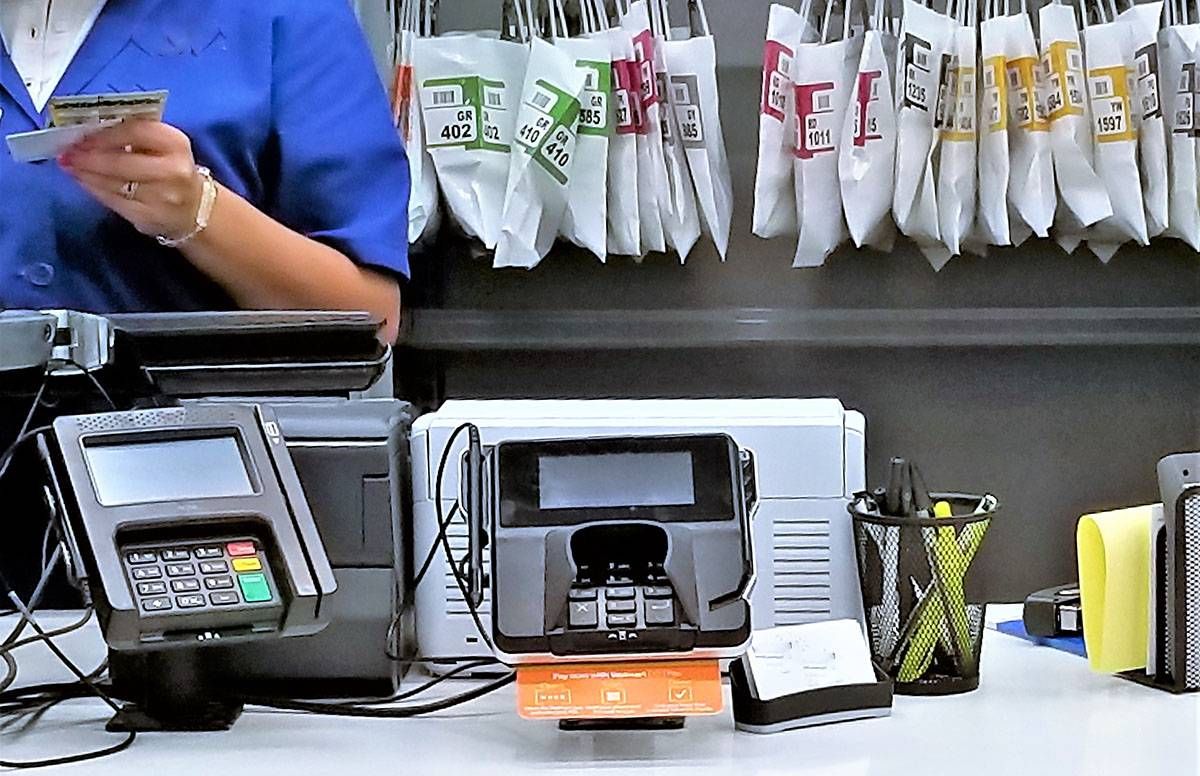How to Stay Safe From COVID-19 at the Pharmacy
Before dashing off to get medications, know the precautions
The COVID-19 pandemic likely has you thinking about your health at least a little differently — especially if you are 65 or older. Routine activities now require more planning than before, including a once simple run to the pharmacy.

Below, two pharmacists share essential guidance on how to stay safe when using pharmacy services:
First Priority: Avoiding Going Into the Pharmacy
If possible, don’t go to the pharmacy if you’re 65 or older. “Ask [someone] to retrieve your prescriptions for you so you can avoid being out and about,” said Dr. Devona Williams, a clinical pharmacist and medical writer in Washington, D.C. “This can be a family member such as an adult child or a responsible grandchild — or even a trusted neighbor.”
Getting 90-day supplies of your medications can cut out those monthly trips to the pharmacy so you won’t have to swing by as frequently.
Use the drive-through. Chain pharmacies often have drive-through services. If you drive, pull through the window instead of going inside the pharmacy, reducing your exposure to the coronavirus. Some pharmacies aren't allowing customers inside at all these days. Instead, you call a number and a pharmacy employee will exit the store to deliver the prescription to you.
Our Commitment to Covering the Coronavirus
We are committed to reliable reporting on the risks of the coronavirus and steps you can take to benefit you, your loved ones and others in your community. Read Next Avenue's Coronavirus Coverage.
Ask about home delivery. Many community pharmacies have an option to deliver your medications right to your doorstep. This includes small and large pharmacy chains, as well as some independent pharmacies. According to Williams, some of the larger health insurance plans have an option to deliver maintenance meds to your home, too.
Consider switching to 90-day supplies of your medications. Getting 90-day supplies can cut out those monthly trips to the pharmacy so you won’t have to swing by as frequently. Just know that you might first need to ask your pharmacist if you can get a 90-day supply. It all depends on how the prescription for your medication was written. Maintenance medications are often written so medications last for 30 days at a time. So, if your prescription was written for a 30-day supply, your pharmacist will have to get your prescriber’s approval before filling your medication in 90-day quantities. Insurance companies are currently authorizing earlier refills on many medications because of the pandemic.
If Avoiding Going Into the Pharmacy Isn’t An Option
Try as you might to stay at home, sometimes, a trip to the pharmacy may be unavoidable. If you still need to enter the drug store, here’s how to reduce risk:
Maintain a distance of 6 feet or more from others. “The most important factor is to maintain physical distancing in the pharmacy as much as you can,” said Dr. Richard Harris, a pharmacist and physician in Houston. “It’s important to prevent the spread of the virus, and multiple studies have confirmed this.”
Cover it up. When entering the pharmacy (or any other public place), be sure to use a face covering for your mouth and nose. You don’t need to wear an N95 mask, the kind typically worn by doctors, pharmacists, nurses and other medical professionals, as well as other essential workers. Right now, these masks remain in short supply. For that reason, the Centers for Disease Control and Prevention (CDC) is asking people to save them for essential workers who frequently encounter people with the virus.
Instead of wearing an N95 mask, the CDC recommends you wear a cloth covering over your face. Although the fabric should contain multiple layers, it should still be breathable. Also, the covering should not be tight or constricting. Instead, it should be fit snuggly, yet comfortably, along the sides of your face. The CDC has additional details about the proper fit and care of your homemade face coverings. And in this video, U.S Surgeon General Jerome Adams explains how to make a face covering with items you already have around the house.
Go during slower hours. Williams and Harris recommend visiting the pharmacy during its quietest hours to reduce your exposure to other people as much as possible. Early mornings and the hour before closing are ideal times because there are typically fewer people in the pharmacy.
Getting to the pharmacy first thing in the morning makes a better choice for two reasons: The pharmacy has the least amount of foot traffic during the first hour it is open, so you’re less likely to encounter people who have the coronavirus. Second, the pharmacy is typically cleanest during this off-peak window when it has had its most recent cleaning and disinfecting. So, your risk of exposure to germs will run lower.
Using pharmacy services during the pandemic does not have to be a chore. Armed with the tips above, you can keep yourself and those you love safe and healthy.

